
GEOLOGY OF ORE DEPOSITS
Scope & Guideline
Cultivating a Rich Understanding of Geology
Introduction
Aims and Scopes
- Ore Deposit Genesis and Classification:
The journal emphasizes research on the origins and classification of various types of ore deposits, including magmatic, hydrothermal, and sedimentary processes. - Geological and Mineralogical Studies:
It publishes detailed mineralogical and geological studies that provide insights into the characteristics and formation conditions of ore deposits, including their structural and textural features. - Geochemistry and Analytical Techniques:
There is a consistent focus on geochemical analyses and the use of advanced analytical methods (e.g., isotopic dating, trace element mapping) to understand ore composition and genesis. - Environmental and Economic Aspects of Ore Deposits:
The journal also covers the environmental implications of mining and ore extraction, as well as the economic aspects related to the mineral resources industry. - Regional and Comparative Studies:
Research that provides comparative analyses of ore deposits across different geological settings and regions is a key area of interest, contributing to a broader understanding of metallogenic processes.
Trending and Emerging
- Advanced Analytical Techniques:
There is a growing trend towards the use of advanced analytical techniques, such as LA-ICP-MS and multi-isotope studies, for precise age dating and geochemical characterization of ore deposits. - Sustainable Mining Practices:
Emerging themes include research on environmentally sustainable mining practices and the recycling of minerals, reflecting global shifts toward responsible resource management. - Hydrothermal and Magmatic Processes:
An increased focus on understanding hydrothermal and magmatic processes related to ore deposit formation is evident, with studies exploring fluid dynamics and mineralization mechanisms. - Critical and Strategic Minerals:
Research on critical and strategic minerals, particularly in the context of geopolitical issues and their role in high-tech industries, has gained prominence. - Integration of Geochemistry and Geophysics:
There is a notable trend towards integrating geochemical and geophysical approaches to enhance exploration strategies and improve understanding of ore deposit systems.
Declining or Waning
- Traditional Geophysical Methods:
There has been a noticeable decrease in the publication of studies focusing solely on traditional geophysical methods for ore exploration, as newer technologies and interdisciplinary approaches gain traction. - Focus on Historical Mining Practices:
Research centered on historical mining practices and their implications has waned, possibly due to a shift towards sustainable and modern mining techniques. - Generalized Mineral Resource Assessments:
Studies that provide broad and generalized assessments of mineral resources without detailed geological context have become less common, as the journal emphasizes more specific and detailed investigations. - Petrology of Non-Economic Minerals:
The focus on the petrology and mineralogy of non-economic minerals has decreased, reflecting a trend towards prioritizing economically viable mineral deposits. - Regional Geology without Direct Ore Context:
There is a declining interest in publications that explore regional geology without a direct link to ore deposits or mineralization processes.
Similar Journals
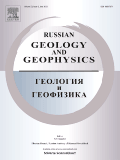
Russian Geology and Geophysics
Exploring the Depths of Geology and GeophysicsRussian Geology and Geophysics is a seminal journal published by GEOSCIENCEWORLD that plays a pivotal role in the dissemination of vital research within the realms of Earth-Surface Processes, Geology, and Geophysics. With an ISSN of 1068-7971 and an E-ISSN of 1878-030X, this journal has witnessed a continuous evolution since its convergence in 2007 and is poised to thrive through 2024. While it is not an Open Access journal, it is recognized for its significant contributions to the academic community, holding a respectable Q2 ranking in Earth-Surface Processes and Q3 rankings in both Geology and Geophysics as of 2023. The journal’s impact factors align it within competitive quartiles, marking it as an essential resource for researchers and professionals seeking to stay at the forefront of geological and geophysical sciences. By publishing high-quality peer-reviewed articles, the journal fosters an environment of knowledge sharing and innovation, making it indispensable for students, practitioners, and scholars alike who are dedicated to advancing our understanding of Earth's complex systems.
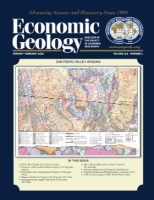
ECONOMIC GEOLOGY
Exploring the Depths of Economic GeologyECONOMIC GEOLOGY, published by the Society of Economic Geologists, Inc., is a premier journal dedicated to the field of economic geology, geochemistry, petrology, geology, and geophysics. With a significant legacy dating back to 1905 and converging into 2024, this journal has established itself as a leading source of research and knowledge in the geosciences, recognized for its high-quality, peer-reviewed articles that reflect the latest advancements in the discipline. Having achieved an impressive impact factor and categorized in the top Q1 quartiles, it ranks among the foremost journals in various related fields, including Earth and Planetary Sciences—where it particularly excels in geophysics (Rank #5) and geochemistry (Rank #6). Although it currently does not offer open access options, its rigorous publication standards ensure that the research disseminated significantly contributes to the understanding and exploration of geological resources. This journal is essential reading for researchers, professionals, and students who seek to deepen their knowledge and stay at the forefront of economic geology.

MINERALOGY AND PETROLOGY
Charting New Frontiers in Mineral and Rock StudiesMINERALOGY AND PETROLOGY, published by Springer Wien, is a premier academic journal that has been contributing to the fields of geochemistry, petrology, and geophysics since its inception in 1987. With an ISSN of 0930-0708 and an E-ISSN of 1438-1168, this journal is recognized for its rigorous peer-reviewed articles that advance the understanding of mineral and rock formation processes, their physical and chemical properties, and the implications for broader Earth sciences. Holding a respectable impact factor and categorized in the Q2 quartile for both Geochemistry and Petrology, as well as Geophysics, MINERALOGY AND PETROLOGY ranks favorably among its peers, placing it within the top 50% of scholarly publications in these fields. Researchers, professionals, and students alike will find a wealth of knowledge in its pages, as it serves as a valuable resource for those aiming to explore the complexities of Earth's materials and compositions. Although it does not offer an Open Access option, the journal assures high-quality, impactful research that is crucial for ongoing advancements in Earth sciences.

ACTA PETROLOGICA SINICA
Exploring the Depths of Geochemistry and PetrologyACTA PETROLOGICA SINICA, published by SCIENCE PRESS, is a distinguished journal in the field of geochemistry and petrology, known for its commitment to advancing the understanding of Earth's materials and processes. With an impact factor ranking it in the second quartile (Q2) of its category and a respectable Scopus rank of 64 out of 154, this journal serves as a vital platform for researchers, professionals, and students alike, facilitating the dissemination of innovative studies and findings from 1980 to the present. Its robust editorial board and diverse array of articles make it an invaluable resource for those engaged in the intricate analysis of petrological phenomena and geochemical transformations. Published in China, ACTA PETROLOGICA SINICA provides access to significant original research, reviews, and insights essential for advancing knowledge and fostering collaboration in the earth sciences.

MINERALOGICAL MAGAZINE
Illuminating the Path of Mineralogical DiscoveryMINERALOGICAL MAGAZINE, published by Cambridge University Press, is a distinguished journal dedicated to advancing the field of mineralogy and its related disciplines, including geochemistry and petrology. With its ISSN 0026-461X and E-ISSN 1471-8022, this quarterly journal has successfully carved a niche since its inception, contributing critical research and insights from 1969, with ongoing publications up to 2024. Holding a commendable Q2 ranking in the field, it currently occupies the 61st position among 154 journals in its category, reflecting its robust influence as measured by Scopus rankings at the 60th percentile. Scholars and researchers seeking to publish impactful findings in earth sciences will find MINERALOGICAL MAGAZINE an essential platform that not only supports rigorous research but also fosters global discourse within the mineralogical community. Its accessibility ensures that valuable insights reach a wide audience, solidifying its position as a beacon for professionals and students alike in understanding the complexities of mineral compositions and their broader implications on earth science.
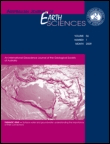
AUSTRALIAN JOURNAL OF EARTH SCIENCES
Connecting Scholars through Earth Science DiscoveryAustralian Journal of Earth Sciences, published by Taylor & Francis Ltd, has established itself as a leading journal in the field of Earth and Planetary Sciences since its inception in 1984. With an impactful reach reflected in its ranking as Q2 in the Earth and Planetary Sciences category, the journal contributes significantly to the advancement of knowledge through rigorous peer-reviewed research. While it is not Open Access, the journal ensures broad accessibility through institutional subscriptions and various academic platforms. With a commitment to covering diverse topics within the Earth sciences, including geosciences, geology, and environmental studies, the Australian Journal of Earth Sciences is an essential resource for researchers, professionals, and students seeking to deepen their understanding of the dynamic processes that shape our planet. Engaging with the journal means being part of a vibrant community that aspires to push the boundaries of scientific inquiry and innovation in Earth sciences.
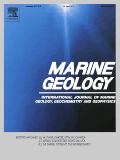
MARINE GEOLOGY
Delving into the Dynamics of Marine Environments.MARINE GEOLOGY, published by Elsevier, is a premier journal dedicated to advancing the understanding of marine geological processes and their interactions with the Earth's systems. With an ISSN of 0025-3227 and an E-ISSN of 1872-6151, this esteemed journal has been a vital resource for researchers and professionals since its inception in 1964. The journal is recognized for its high impact, with commendable rankings, including Q1 in both Geology and Oceanography, and Q2 in Geochemistry and Petrology according to its 2023 category quartiles. With a Scopus rank within the top percentiles in various fields, MARINE GEOLOGY offers a platform for original research, critical reviews, and significant advancements in the field, covering topics ranging from sedimentology to geochemical processes in marine environments. Although it does not operate under an open-access model, its rigorous peer-review process ensures high-quality publications that contribute to our understanding of oceanic and geological sciences. Researchers, students, and professionals alike will find MARINE GEOLOGY to be an essential resource for collaboration and discovery within the vast field of marine science.
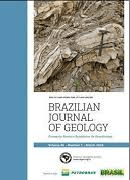
Brazilian Journal of Geology
Exploring the Depths of Earth ScienceBrazilian Journal of Geology, the flagship publication of the SOC BRASILEIRA GEOLOGIA, has been a beacon of geoscientific research since its inception in 2013. With an ISSN of 2317-4889 and an E-ISSN of 2317-4692, this open-access journal has facilitated the dissemination of high-quality research across various branches of geosciences, making it freely accessible to a global audience since 2014. Hailing from Brazil, the journal proudly holds a Q2 ranking in Earth and Planetary Sciences as of 2023, and ranks #73 out of 195 in Scopus, indicating its growing impact and relevance in the field. The Brazilian Journal of Geology aims to bridge diverse geological studies with interdisciplinary approaches, promoting the understanding and application of geology in addressing contemporary scientific challenges. As it converges research from 2013 to 2024, the journal not only enriches the academic landscape but also serves as a vital resource for researchers, professionals, and students eager to explore the complexities of the Earth and its processes.
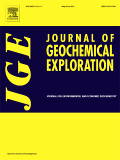
JOURNAL OF GEOCHEMICAL EXPLORATION
Transforming Research into Real-World ApplicationsJOURNAL OF GEOCHEMICAL EXPLORATION, published by Elsevier, is a leading journal in the fields of Geochemistry and Economic Geology, with a notable Impact Factor and a commendable performance demonstrated by its Scopus ranking, where it holds the 22nd position out of 154 in Geochemistry and Petrology and 11th out of 43 in Economic Geology. Founded in 1972 and set to converged through 2024, the journal serves as a vital platform for disseminating high-quality research, providing insights into the complex relationships between geological processes and geochemical phenomena. Its articles contribute significantly to the understanding of natural resource exploration and environmental geochemistry, making it an essential resource for researchers, industry professionals, and students alike. Although not an open-access journal, it offers a wealth of knowledge aimed at advancing the field's boundaries and fostering innovative research initiatives. As an established outlet for the latest findings and methodologies, the journal's contributions ensure it remains at the forefront of geochemical exploration.
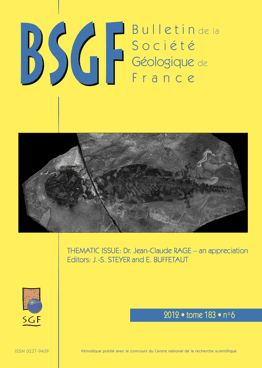
BSGF-Earth Sciences Bulletin
Illuminating Earth Sciences for a Sustainable FutureWelcome to the BSGF-Earth Sciences Bulletin, a premier open-access journal published by EDP SCIENCES S A that has been illuminating the field of earth sciences since its inception. With an ISSN of 0037-9409 and an E-ISSN of 1777-5817, this journal has established itself as a vital platform for disseminating significant research findings and innovative studies in Earth and Planetary Sciences. Operating out of France, BSGF is recognized for its rigorous peer-review process and its commitment to accessibility, having transitioned to open access in 2018. This stature is reflected in its outstanding rankings, placing it in the Q1 quartile within both Earth and Planetary Sciences and Geology disciplines, and ranking #35/195 overall in the Scopus database. Researchers, professionals, and students alike will find the BSGF invaluable for its high-impact articles, which span a wide array of sub-disciplines, addressing both foundational concepts and contemporary challenges in earth sciences.